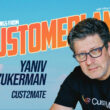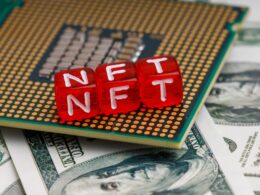So between the pandemic and the economy and the social unrest and the politics and tribalism, it’s no longer business as usual. And yeah, it’s particularly had to stay calm when a recession raises its ugly head. But, of course, needs must. You know, necessity compels. Something you do unwillingly but with an attitude and acceptance it can’t be avoided. We have clients debating their best course of action regarding their ad budgets these days, and we have some definite thoughts about that, but more about that in a bit.
By Robert Passikoff
Last week, two news reports caught my eye. One headline read, ‘New Economy’ Brands First To Cut Back Due To Headwinds In Actual Economy. It reported the “new economy” advertising sector was feeling the biggest pinch. As opposed to that of the general economy. A bunch of “ad industry experts” (that’s what theycalled themselves) reported (to investors), “Ad budget cuts are being led by former emerging categories that have run into massive headwinds owing to changes in consumer behavior and the funding environment.”
The panel didn’t name any brands in particular, but thought the areas under threat were social media, retail, D2C retail, VC-backed startups, and cryptocurrencies. So, OK about the cryptocurrencies. That’s old news. Around $1.2 trillion has already been wiped off the entire cryptocurrency market. So, no surprise there.
The other article had to do with tech businesses – specifically TikTok – “reorganizing” for the recession, which is economic code for “layoffs.” Nearly 60,000 people in the tech industry have been laid off in 2022 so far. From a people-perspective, layoffs in any industry aren’t good news. From a brand-perspective, however, cutting ad budgets is a definite mistake.
Why do I say that? Well, Brand Keys has emotional engagement assessment tools that measure whether – and how – brands should advertise. Our June 2022 survey found 82% of sectors should be advertising the hell out of their brands. Brands that do that now will see long-term sales boosts later. Sure, they need to adapt and identify new strategies and messaging and creative during economic turndowns, but that’s the time to take advantage of the situation.
Advantage? Well, sure. There’s less competition. And, no, it doesn’t balance out if everyone cuts back on their brand support. Fewer ads mean less competition for consumers’ attention. So, ads that do run will make a greater impact. More screen time equals more eyeballs. More eyeballs equal a better ROI. Also, history has shown that during an economic downturn you can negotiate better ad rates. Or ask for value-adds. Whatever the media, better media economics equals. . . yes, better ROI. Do all that and you grow share of mind, share of wallet, and share of market. BTW, if you cut support in a downturn, the cost to regain share of voice once the economy “upturns,” can cost five to six times what you think the cuts saved you. Just saying.
How do we know that? Fifty years of marketing history proves it, but so do our loyalty and engagement assessments. Brands that continue to advertise during bad times do better than brands that cut their budgets. And while no two downturns and/or recessions are precisely alike, here’s what happened:
1973 Energy Crisis: Automotive brands that increased advertising became sales leaders within 6 months.
1991 Oil Crisis & Massive Job Losses: Brands that increased advertising saw sales go up 40% to 60%. Brands that cut advertising saw sales decrease 25%.
2002 SARS Crisis: Cost to world economy was $40 billion. Companies that supported brands saw sales increases of 28% to 35%.
2008 Financial Collapse & Massive Recession: Overall brand support dropped 15%. Brands that increased efforts saw sales grow 30%.
2020: COVID: The pandemic hit the economy hard. We’re dealing with the effect even now. But as customer expectations are constantly on the rise, true innovation (and profitability) can take place within a framework like that. If companies pay attention and continue to support their brands.
The pandemic, for example, forced consumers to learn how to work, socialize, and shop in new ways. And it’s not just a habitual behavioral thing, it’s a form of adopted obligatory-innovation. Which only happens if brand support is maintained. Easiest examples are Zoom and Peloton. And Hello Fresh, whose shares are up over 300% since the pandemic. And sure, “needs must” and all that, but it doesn’t happen if you don’t support the brand!
So, if you want to see increases like that for your brand it means continuing to promote your brand during recessionary times. The current economic downturn won’t last forever, so when you’re planning your marketing spend, it’s worth remembering your organization’s long-term goals. As to the layoffs, our model doesn’t take that into account. Although it is worth remembering what Harry Truman had to say about how consumers will view that.
“It’s only a recession when you neighbor loses his job; It’s a depression when you lose yours.”
 Robert Passikoff is founder and CEO of Brand Keys. He has received several awards for market research innovation including the prestigious Gold Ogilvy Award and is the author of 3 marketing and branding books including the best-seller, Predicting Market Success. Robert is also a frequent contributor to TheCustomer.
Robert Passikoff is founder and CEO of Brand Keys. He has received several awards for market research innovation including the prestigious Gold Ogilvy Award and is the author of 3 marketing and branding books including the best-seller, Predicting Market Success. Robert is also a frequent contributor to TheCustomer.













1 comment